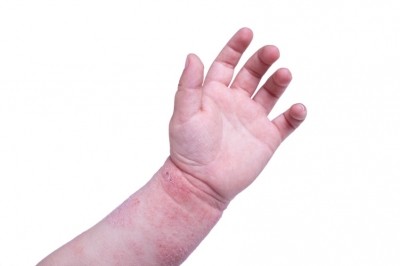Could kimchi reduce the risk of eczema?

The data, which shows correlation and not causation, indicated that consumption of fermented Korean foods more than 92 times per month is associated with a 44% lower prevalence of eczema in almost 10,000 Korean adults.
On the other hand, high consumption levels of meat and processed foods were associated with a significantly increased prevalence of eczema, wrote the researchers in Nutrition Research.
“These results suggest that the westernization of dietary patterns, including less consumption of fermented foods, was highly associated with the increased prevalence of atopic dermatitis,” wrote Sunmin Park from Hoseo University and Ji-Hyun Bae from Keimyung University
“This information can be used to develop nutrition education programs for the general population designed to decrease risk factors for atopic dermatitis.”
Probiotics?
Park and Bae explained that the potential health benefits of fermented foods like doenjang, chungkookjang, kimchi, fermented seafood, makgeolli, and beer may be linked directly to the ingestion of live microorganisms, such as bacteria or yeast, or indirectly to biogenic metabolites produced during the fermentation process.
“Bioactive peptides (biogenic peptides released from food proteins by microbial proteolysis during fermentation) have been known to have immunostimulating effects, such as increasing IgA-producing cells and macrophage activity, leading to the prevention of infectious diseases,” they wrote.
“During fermentation, vitamins such as vitamin K and vitamin B12 could be synthesized by microbes; these vitamins play an important role in host health, including the prevention of atopic diseases.”
On the potential probiotics in fermented foods, Park and Bae said that these have been linked to eczema benefits in both young children and adults.
“L. paracasei, L. acidophilus, L. salivaris, B. animalis, B. lactis, and B. breve were effective in the treatment of patients with atopic dermatitis by modulating gut microbial translocation, Th17/regulatory T cells, and Th1/Th2 cytokine profiles,” they added.
Study details
The Korean researchers analyzed data from 9,763 adults over the age of 19 participating in the Korean National Health and Nutrition Examination Survey (KNHANES). Dietary patterns were examined using food frequency questionnaires.
High intakes of fermented foods such as doenjang, chungkookjang, kimchi, fermented seafood, makgeolli, and beer were associated with a 44% lower prevalence of eczema in the adults.
Interestingly, similar reductions in the prevalence of eczema were also associated with the consumption of coffee, chocolate, and ice cream. The researchers postulated that this was mostly due to coffee. However, because they did not differentiate between types of coffee, they were unable to identify which component(s) may be involved in reducing the prevalence of eczema.
While high levels of consumption of meat and processed foods were linked to higher prevalence of eczema, no association was observed for intakes of raw vegetable, fruits, legumes, and seafood.
“Thus, the Westernization of dietary patterns may be a risk factor for atopic dermatitis in the Korean adult population. This is a novel finding which shows the association between the dietary pattern changes and the prevalence of atopic dermatitis,” they wrote.
Source: Nutrition Research
Published online ahead of print, doi: 10.1016/j.nutres.2015.11.011
“Fermented food intake is associated with a reduced likelihood of atopic dermatitis in an adult population (KNHANES 2012–2013)”
Authors: S. Park, J-H. Bae

















